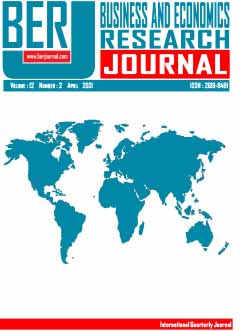Ticari Küreselleşme, Ticari Açıklık ve Bölüşüm Olgusunun Gelir Eşitsizliği Üzerinden Değerlendirilmesi: OECD Ülkeleri Açısından Bir İnceleme
The Assessment of Trade Globalization, Trade Openness, and Distribution Through Income Inequality: An Examination in Terms of OECD Countries
Author(s): Onur Ozdemir, Emrah DoganSubject(s): Supranational / Global Economy, Globalization, Socio-Economic Research
Published by: Adem Anbar
Keywords: Income Inequality; Trade Globalization; Trade Openness; Distribution; Bargaining Power;
Summary/Abstract: This study examines the effects of trade globalization and trade openness on income inequality within the framework of OECD countries for the period 1980-2016. The empirical findings acquired in the context of baseline analysis show that both trade variables increase income inequality within the specified period. At a more specific level, the real trade openness variable, which is formed by adjusting from the price changes, is also included into the models in which its relationship with the income inequality is negative and highly statistically significant. In the robustness test analyses that include additional explanatory variables supporting the baseline results, both trade openness and trade globalization variables have negative effects on income inequality. The economic logic behind the findings of the study is that the negative changes in the labor market should be considered as the main cause of the negativities behind the basic variables used in the analysis. In other words, the decrease in the bargaining power of labor increases the income inequality at the household level by increasing the share of capital accruing from the national income.
Journal: Business and Economics Research Journal
- Issue Year: 12/2021
- Issue No: 2
- Page Range: 245-268
- Page Count: 24
- Language: Turkish

